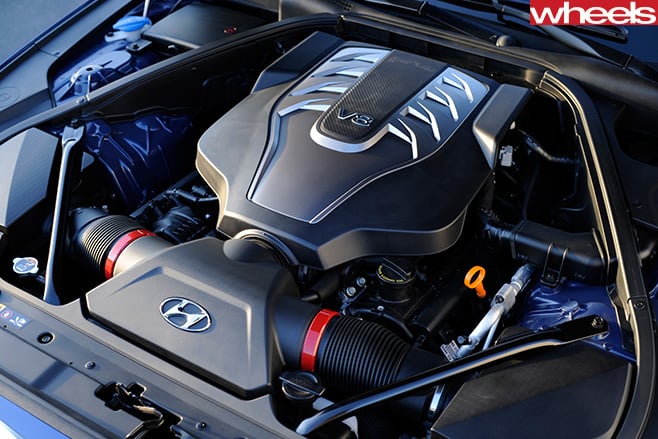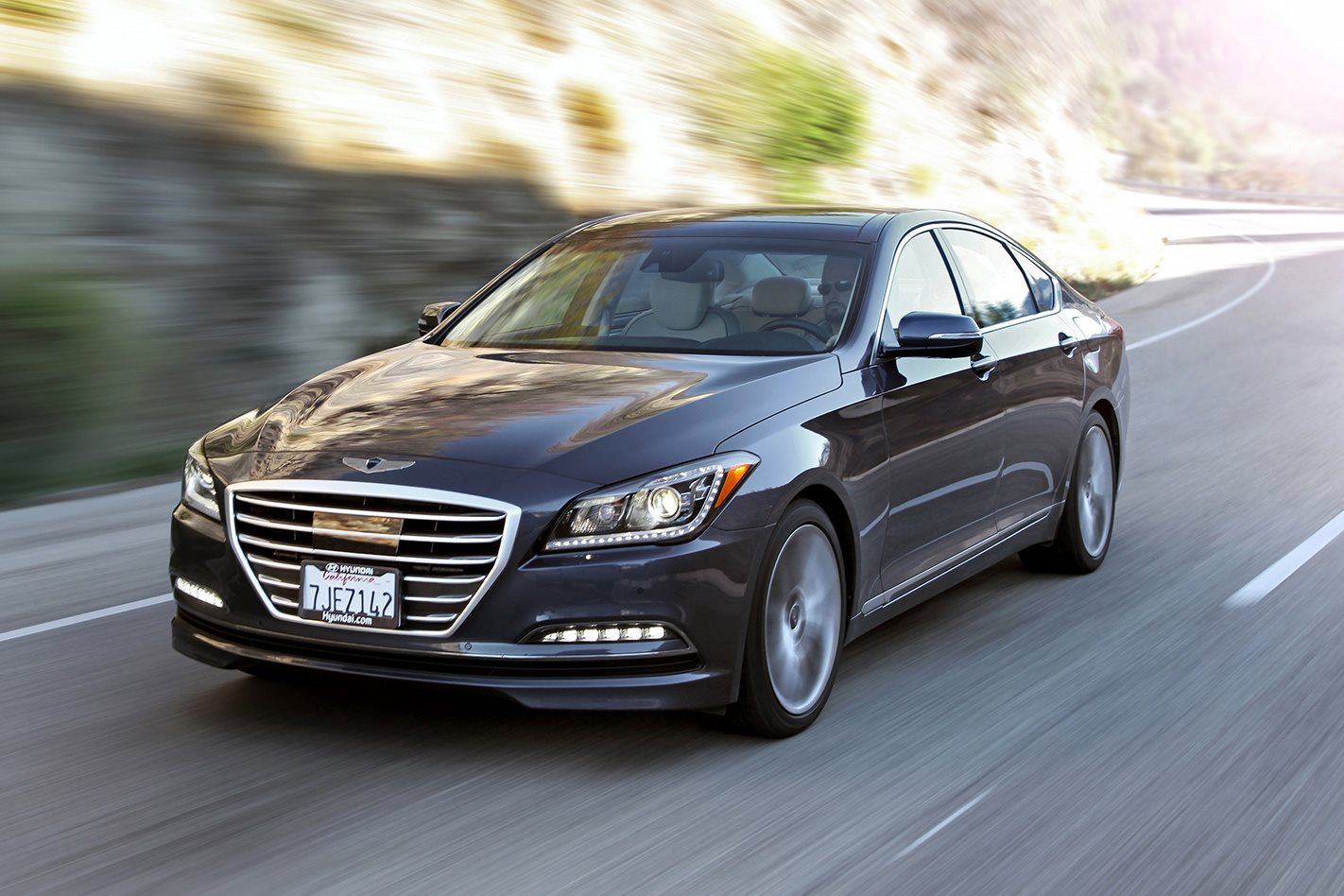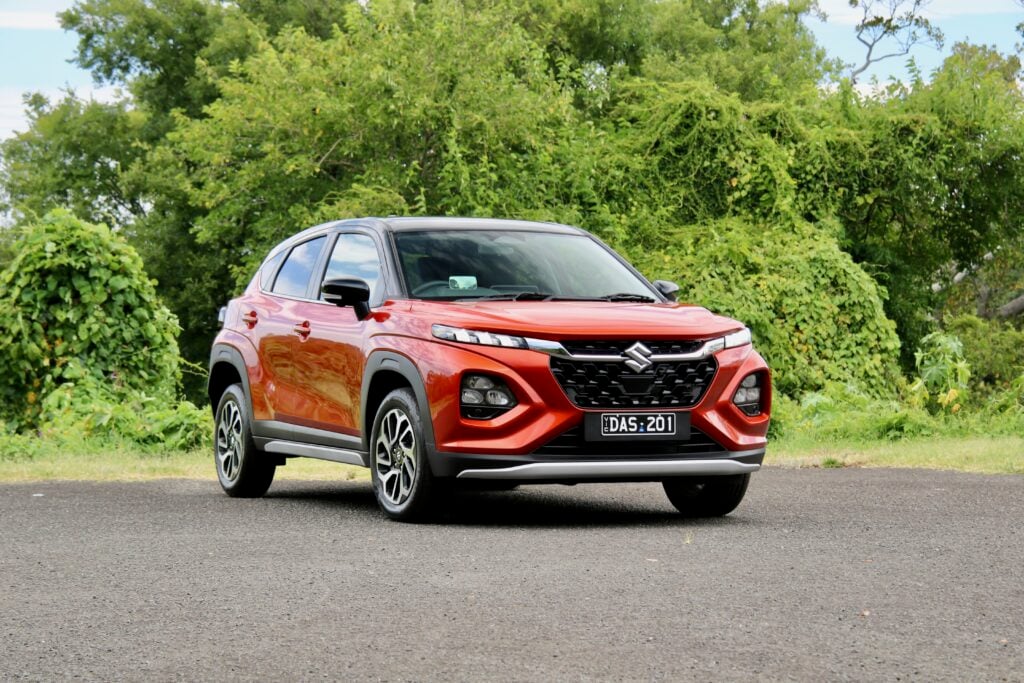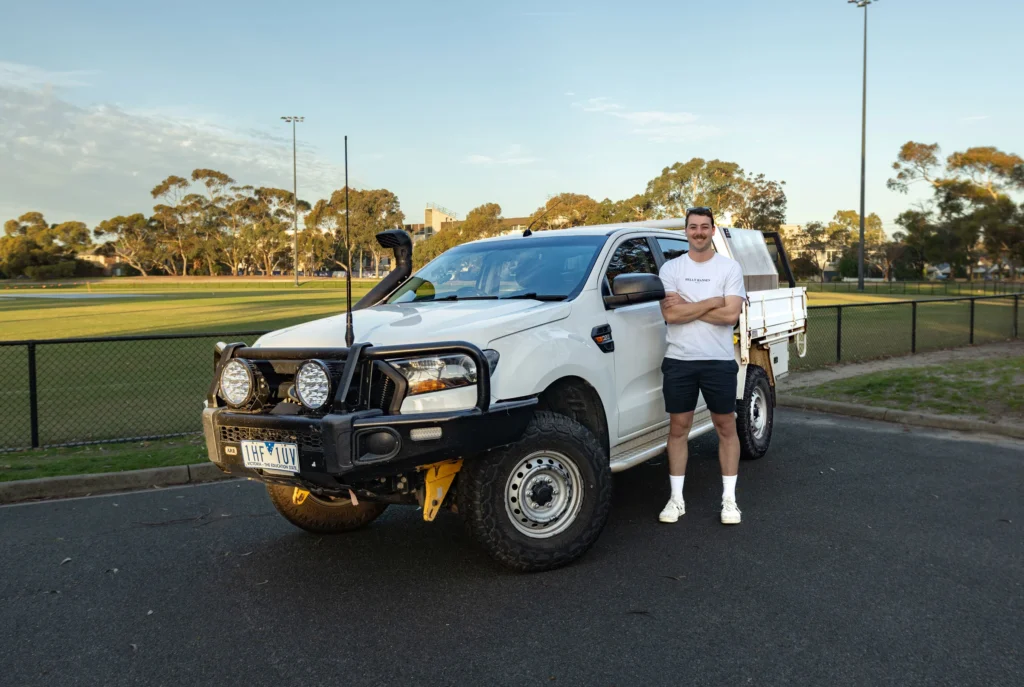There’s a V8 version of the Genesis prestige sedan in America and Korea, so why didn’t Hyundai Oz stamp its passport?
WHAT IS IT? The Genesis is Hyundai’s more affordable rival for European prestige sedans such as the BMW 5 Series, Audi A6 and Mercedes-Benz E-class.
WHY WE’RE TESTING IT This is the one that got away. When Hyundai Australia built its business case for the prestige Genesis sedan, it chose to bring only the 3.8-litre V6 rather than offering the 5.0-litre V8 as well. We wanted to know why.
MAIN RIVALS Holden Calais V, Ford Falcon G6E, Lexus GS, Audi A6, BMW 5 Series, Mercedes-Benz E-class
THE WHEELS VERDICT The Genesis V8 has the performance and character to stand above its V6 brother, but it would need a lesson in road manners to work as well in Australia.
PLUS: Stronger engine; quiet cabin; premium feel; value for money MINUS: Busy ride; touchy throttle; thirsty; lifeless steering

We Aussies have an affinity with such beasts, so surely it was a no-brainer. And yet Hyundai Australia plumped for just the 3.8-litre V6.
Having spent the past five months in an Oz-spec Genesis V6, I can tell you it’s not short on herbs. So that clearly wasn’t a strong motivating factor. And Hyundai says the V8, which sells mostly in North America, had not been engineered for right-hand drive. To do so, it says, would have added too many millions to the program’s cost.
But still, what if the Genesis V8 had been engineered for RHD from the outset? Would it have contributed significantly to the car’s appeal? I had to know. So on my way to the Detroit show, I detoured to California to find out.
The V8’s extra 84kW and 113Nm is immediately noticeable, even though the car weighs 170kg more than the top-spec V6 sold in Australia. It accelerates more vigorously from standstill and is more generous in its response to throttle inputs.

Other equipment is not so obvious, but obviously welcome, like lane-keeping assist (Aussie V6 thrums the wheel when you stray; the US V8 steers as well). And there’s a traction-control button, too, in which ‘Off’ really means off.
There’s little difference with in-cabin refinement – the visual and tactile kind, and the on-the-move kind. Materials and finish are top-notch, the driving position spot-on.
The V8 engine is barely audible during normal driving. Press harder and a pleasing V8 burble is evident but still restrained, as befits a prestige sedan. Give it full wellie and there’s noticeably more kick, but not as much as you’d expect with 30 percent more capacity, and it doesn’t feel like the 1.8sec 0-60mph difference one US mag claims between the V6 and V8 (7.2 v 5.4).
The eight-speed auto lacks the smarts to really leverage the V8’s stronger bottom end. The gearchange mapping feels out of step with the engine’s charms. It’s also not as smooth as my V6.

The ride, however, is less than stellar. Overly busy and sharp, particularly at low speeds, it’s a weakness for a prestige sedan. It’s also a pointed reminder that Hyundai Australia’s local tuning efforts, which deliver a more absorbent and more controlled ride, are to be applauded.
That’s not a deal-breaker, though. If it were to come Down Under, Hyundai Oz would surely fettle the V8’s manners. It’d make a pretty decent flagship, too, with that extra performance and equipment. But business cases are about numbers and it’s hard to see the V8 adding much to the V6’s 50 sales per month. Not enough to recoup the cost of a RHD program.
SPECS
Model: Hyundai Genesis V8 Engine: 5038cc V8 (90°), dohc, 32v Max power: 313kW @ 6000rpm Max torque: 519Nm @ 5000rpm Transmission: 8-speed automatic Weight: 2060kg 0-100km/h: n/a Economy: 13.1 L/100km (US) Price: $US53,850 On sale: Not for Australia





